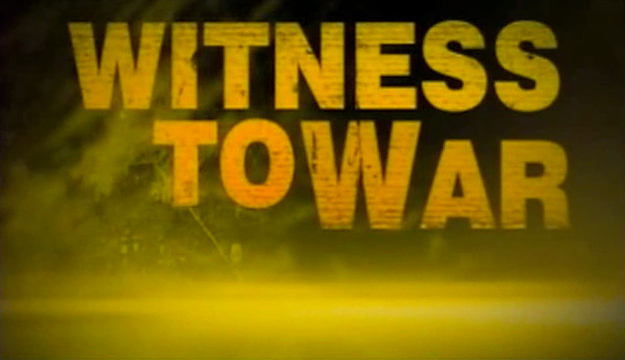
Witness to War is a documentary from CNN International in which six war correspondents -- Atia Abawi, Stan Grant, Nic Robertson, Reza Sayah, Ivan Watson, and Michael -- discuss the war in Afghanistan/Pakistan and the people and events they have covered there.
(to view just the portions of the program in which Michael is interviewed, go here)
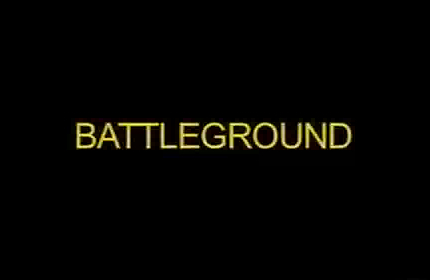
Part 1 Length: 6:57
LARGE (80.0 MB) ----- SMALL (7.7 MB)
(SPEAKING FOREIGN LANGUAGE)
TEXT: Afghanistan and Pakistan are two of the most dangerous places on Earth. Coups, unrest and war have raged since the 1970s. Since 2001, both nations have been front lines in the U.S.-led "War on Terror." CNN recently debriefed six of its correspondents assigned to the region. These are their stories.
CNN PRESENTS: Witness to War.
BATTLEGROUND
NIC ROBERTSON, CNN INTERNATIONAL CORRESPONDENT: Afghanistan is a place that's been bypassed by the Industrial Revolution. It's been bypassed by most major modern developments -- and by modern, we can go back, you know, a century and a half.
Afghanistan doesn't have a railway network. It doesn't have a national grid for electricity that reaches across the country. It's very hard for people's lives to improve. And as the rest of the world races ahead in the computer age and in advanced medical techniques around the world, Afghanistan is very much stuck in the Dark Ages.
REZA SAYAH, CNN INTERNATIONAL CORRESPONDENT: There's the Afghan/Pakistan border, the tribal region. It's a primitive lifestyle. We've been to some of these local villages, the homes are made out of mud. It's very hot. It's one of the most mountainous and rugged regions in the world.
And these are people that were born to fight. You know, for ages their way of life is fighting.
STAN GRANT, CNN INTERNATIONAL CORRESPONDENT: Thirty years of war, a generation raised in war, children left orphaned, women left widowed, an economy flattened. People sickened by this endless conflict. They are fed up. Everyone you speak to says, when will this end?
IVAN WATSON, CNN INTERNATIONAL CORRESPONDENT: Upon landing in Afghanistan, it was my first visit there. And what really struck me was how primitive and backwards that country was. There was no electricity. There was no running water. There were no paved roads. Quite simply, some of the worst roads I've ever been on.
And as you explored that area, bouncing around on these awful roads, riding through river beds even to get from place to place -- another thing that struck me was the leftovers of nearly 25 years of conflict were littered across the Afghan countryside. Old Soviet tanks and armored personnel carriers just sitting on the side of the roads, ruined, pieces of tank shells, of cannon shells.
And it made me realize that this country was accustomed to living with conflict for a quarter century.
GRANT: How did it start? Look at this. I'm sitting on a shell of a Soviet tank on a hill overlooking Kabul.
Here -- this is where so much of it began. This battle with the Soviets and the mujahadeen for control of Afghanistan. The local warlords rising up, backed by Pakistan, backed with money from the United States, from Saudi Arabia, fighting the Soviets, to drive the Soviets out. The Soviets leave and there's a vacuum, the warlords turn on each other.
Who enters the fray? The Taliban.
MICHAEL WARE, CNN INTERNATIONAL CORRESPONDENT: It's easy to argue that that's when 9/11 and a lot of other problems in the region were born. When America simply walked away once the Soviets withdrew.
Don't forget, there was a war under way in Afghanistan at the time of 9/11. There were front-lines active at that moment as the Taliban were fighting other Afghans.
9/11 obviously changed everything. The reason why the West is there is to answer a security threat being posed by the al Qaeda organization in exporting terrorist attacks from its planning and strategic bases in Afghanistan and in the tribal areas of Pakistan.
ATIA ABAWI, CNN CORRESPONDENT: Afghanistan has always been a country where it's been a battleground of ideologies. And unfortunately, it's been the Afghan people who have to live through that battle.
WATSON: One narrative that I hear again and again, not only from Afghans but also from Pakistanis is the abandonment they experienced after the withdrawal of the Soviets and the withdrawal of U.S. aid to that region. After pumping in so much money and so many weapons, both of these superpowers agreed to just stop, leaving huge numbers of armed militants, leaving a raging conflict, leaving millions and millions of refugees behind.
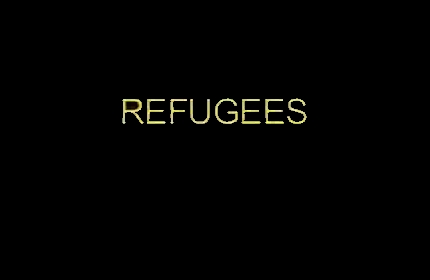
Part 2 Length: 6:10
LARGE (70.9 MB) ----- SMALL (6.9 MB)
REFUGEES IN AFGHANISTAN
GRANT: Let me talk about the latest experience we had. We were driving on the outskirts of Kabul and we saw in the distance this collection of tents and mud huts, and we pulled over. It was a refugee camp.
These are refugees from the fighting in the worst parts of the country, the people who are really caught in the middle of the battle between the Taliban and allied forces.
And the immediate impression when I walked in there was just depression and hopelessness. Children with bare feet, ragged clothes, open sores on their faces, sores that are going to become infected and ultimately can kill them if they don't get the medical treatment that they urgently require.
ABAWI: The first time we walked into a refugee camp in Afghanistan, it was actually a refugee camp in Kabul. It was our first few days into the country. I was shocked. I mean, there were acres and acres of makeshift tent homes and it was just astonishing to think that thousands of people still lived in that kind of environment in the capital of Afghanistan.
(BEGIN VIDEO CLIP)
ROBERTSON (January 2001): The fear among aid organizations now, that if the drought continues, so will the displacement of people on a scale much greater than before.
(END VIDEO CLIP)
ROBERTSON; Conditions in these camps are horrific, I've seen camps in Afghanistan where, you know, it's been hard for people to find any wood to cook their meals on, hard for them to find any water. Where the tents have been what looked like just rags tied together -- rags and, you know, a few humble possessions.
There's a resilience. But there's an utter desperation, because when you see food coming in, and when that food is in limited supply, unless there are people there sometimes quite physically beating people back in the crowds, that food will just be torn from the weakest people's hands. So, there's a -- it is a survival of the fittest.
(PEOPLE SPEAKING FOREIGN LANGUAGE)
REFUGEES IN PAKISTAN
WATSON: We walked into a refugee camp in western Pakistan in spring of 2009, and there were hundreds of Pakistani men, refugees, milling around, waiting for food distribution and increasingly agitated.
(PEOPLE SPEAKING FOREIGN LANGUAGE)
WATSON: And they wanted to tell their story. They wanted us to hear what they had to say, and they were furious that the camp administrators, whom they accused of stealing the very aid -- food aid, that they were supposed to be distributing, were charging money for it. Those were allegations that I could never really confirm.
It was a dangerous atmosphere. And you can see how if you leave these people living in these conditions for longer periods, they will become breeding grounds for all sorts of problems, from crime to insurgencies. They could become recruiting grounds.
SAYAH: Because of these terrible conditions here, these children are developing conditions that are difficult to treat.
Doctor, tell us what we have here.
UNIDENTIFIED MALE: There's some kind of allergic skin reaction which has gone chronic, it's been there for about a month.
SAYAH: Okay.
I've never seen anything like the scenes that I've witnessed in refugee camps. And sometimes, it was so overwhelming it didn't seem real.
Tent after tent after tent, families, husbands, wives, children, and it didn't seem real to me that so many families, so many millions of people had been displaced, lost everything, lost their homes, their livelihood and they were now living in tents looking forward to one meal a day with an uncertain future.
There were so many times when I asked them, "What now? What do you do now?" And it was a shrug of the shoulder, "We don't know." That was, you know, heartbreaking. You know, seeing the children obviously in distress.
They were so excited, you know, to see us whenever we came with cameras, whenever we came with our crew. There was not a time when we didn't get a rush of people coming to us, telling their stories. And to me, that was a desperate cry for help, saying, "We are here, help us, somebody do something." Because nobody else appeared to be doing anything.
And you know, I think the refugees are key -- because you are not going to beat the militancy in Pakistan if you don't have consensus, if you don't have the support of the people. And if the people aren't being taken care of by the government, if the people are living in tents without food and water, with uncertainty, how are you going to get them to support your cause?
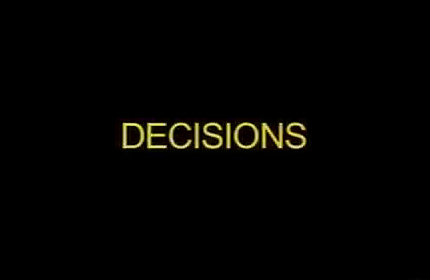
Part 3 Length: 8:31
LARGE (98.0 MB) ----- SMALL (9.4 MB)
DECISIONS
GRANT: The Taliban had been routed, 2001, after 9/11, and then the push into Afghanistan by U.S. forces. The way that the U.S. and others were able to tap into the existing militias here who'd fought the Soviets to then rise up and drive out the Taliban. The Taliban were defeated in Afghanistan. But the U.S. left.
WARE: The Bush administration shifted the focus of its counterterrorism operations, its anti-al Qaeda operations, its so-called "War on Terror" to Iraq. Iraq!
We now know that there was no casus belli for that. Al Qaeda wasn't here. Saddam wasn't projecting a terrorist threat beyond his immediate borders, certainly not to the United States. Heck, the regime of Saddam Hussein didn't even possess weapons of mass destruction. The U.N. kept saying that.
So, like it did after the Soviet withdrawal, the invasion of Iraq took America's eye off Afghanistan. And America is still paying a price for that to this day.
GRANT: The decision to go to Iraq diverted attention and resources from the fight in Afghanistan, opened the window for the Taliban to come back. It slowed the rate of reconstruction and progress and development in Afghanistan. It made people feel here as if they had been deserted -- and deserted again.
WATSON: The shift from Afghanistan to Iraq was palpable. I mean, we in the media did it as well. I closed the National Public Radio bureau in Kabul because we all knew a war was coming in Iraq.
ABAWI: When there's media attention on the country, the country improves. When the media attention goes away, the country falls apart.
ROBERTSON: Everywhere you look at it, Iraq has hobbled the military operation here, the political and diplomatic initiatives in Afghanistan. I remember going around Afghanistan in the past few years where troops have told us they don't have the helicopters to get around, they don't have the helicopters to bring in the regular food supplies that they need. Why? Because these assets have been in Iraq.
GRANT: Why leave here? Why go to Iraq? You've got them on the run. You've got the upper hand in Afghanistan. Why walk away? That's what the people here are saying.
WATSON: Now, you have NATO fighting against Taliban insurgents, you have a very unpopular Afghan government, and an Afghan population who no longer trusts the international community, no longer has great hope for the international community or the Afghan government the way they did in 2001, and there was an incredible window of opportunity there. And I fear that that window has closed. And now, the country is mired in yet another chapter of its endless civil war.
Five years after the overthrow of the Taliban, I met with a Taliban fighter who had been in the front lines, in the trenches, facing off against the northern alliance during the U.S. bombing campaign of the Taliban. He described to me the retreat of the Taliban from that area, and basically how Taliban fighters, they got the order to run and then they just picked up and left, and went back to their villages.
And he went on to say that many of these fighters were back in the movement again. They were back involved again and wanting to fight against the U.S. and the NATO forces in Afghanistan.
WARE: For a year after 9/11, I lived in Kandahar, pretty much with the Taliban. They'd changed uniforms. Their turbans mightn't have been the same. They suddenly may have been the chiefs of police in districts and local administrators, but they were still the Taliban.
ABAWI: All they did was shave their beards and blend into the crowds and live normal lives just so they wouldn't get caught, they wouldn't get in trouble. The Taliban have been around, and will still be around, and right now, they're in disguises that you won't ever guess. I mean, lately, we had a suicide bombing, it was a suicide attack within Kabul, an infiltration where eight Taliban suicide bombers went to various ministries and how they got in, they were wearing a suit and tie, perfectly shaven, gelled hair, had men pretending to be their bodyguards, and they got into these ministries.
WARE: The Afghan Taliban is a complex beast with many, many faces and many, many applications. One thing for sure is that it has proven its capability to endure. What we now also see, however, is the emergence in recent years of a Pakistani Taliban. These are two entirely different organizations, yet in many ways, they share a similar philosophy and ideology, and a war-fighting capability. In essence, the concept of the Taliban is flourishing and growing across the border.
ROBERTSON: The natural place they ran to was Pakistan, because that's where many of them had come from, that's where they got their training, that was a way to escape U.S. and coalition forces that were arriving inside Afghanistan after September the 11th.
So they brought with them those same values that they'd had in Afghanistan, their sort of extreme religious views, et cetera, et cetera -- and slowly imbued that into the communities that they were living in along the border with Afghanistan inside Pakistan.
WATSON: The Pakistani military made several attempts to try to dislodge the Taliban that created a lot of refugees, did a lot of damage, killed civilians and ultimately failed. And then the Taliban would just come back again.
SAYAH: Even in the established settled areas, like Swat, this is not the tribal region. If you look at what's happening in Swat. That place is supposed to have governance, but it's not.
That's a region where there was conflict and what security forces do? They ran away. What did the government officials do? They ran away. And that's why you had the Taliban come in and take over.
Now, when you have the people of Pakistan see this, that a group of militants easily -- just like that -- are able to wipe away the government, the security forces from a region like Swat, which was the jewel of Pakistan, how are you supposed to have confidence in your government?
GRANT: I remember meeting one woman who refused to show her face, she was still in fear of the Taliban recognizing her. She'd left the Swat Valley after the Taliban rule of terror there.
UNIDENTIFIED FEMALE: I have three, kids for God's sake. The whole point is, if it's not contained in Swat, it's going to spill all over. It's going to spill all over in Pakistan and the West also doesn't realize the seriousness of the situation. Because probably your next 9/11 is going to be from Swat.
GRANT: She said the next 9/11 will come from the Swat Valley. This is what the people who have emerged from those societies are telling us.
TEXT: While the situation remains fluid, Pakistani forces have now claimed victory in the fight against Taliban militants in the Swat Valley.
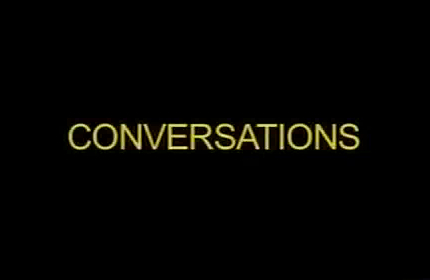
Part 4 Length: 9:32
LARGE (109.6 MB) ----- SMALL (10.3 MB)
CONVERSATIONS
WATSON: An interesting thing that I experienced this spring in Pakistan was there were a number of people I talked to, Pakistanis, who like the Taliban, who think they're good Muslims, who believe that the Taliban is fighting for something honest and noble.
It sounds like the Taliban are heroes to you.
(voice-over): "We love the Taliban," this man says. "Poor people only like those who care for the poor."
(on camera): The Taliban come in and they say, we will defend you, you are our fellow Muslim, we are going to protect you against this corrupt system of government, against these corrupt policemen and judges and ministers, and that resonates with ordinary Pakistanis.
GRANT: The one that really stands out for me was a Taliban member I found -- I met along the Pakistan/Afghanistan border. He had been captured by the Pakistan army. And this was a striking image. Here was a man, bound in chains.
What struck me about him was that this was a gentle man. This was a man who was incredibly soft-spoken. It was disarming to see him there. He was defeated. He was hollow. We asked him, why did you do what you did? He said, I was misguided. I was told to fight the U.S., to fight the infidels, but now I know this was not right. He said that he would fight no more. He said he realized it was wrong to kill people.
UNIDENTIFIED MALE: I am sorry. I'm very much sorry. And I'm ashamed of my acts. And I will not fight again, inshallah.
GRANT: It wasn't the Taliban that we associate with bravado. It wasn't the Taliban with the gun raised in the air. It wasn't the black turban and the dark glasses. This was a man who had been on the front line and was defeated. It was a very unnerving moment when I met him. And it will stay with me forever.
WATSON: Afghans are probably the toughest people I've ever met. These people have lived with conflict for a quarter century and they have a sense of humor that I've never really seen anywhere else in the world. And they put up with more hardship than I think most any society has ever seen.
ROBERTSON: You know, one of the strongest images that I remember was this old man in a burned-out building, it was a mud building and it was a windy day, and there were dark clouds scudding over the sky, and I remember he was digging through the rubble of his building and he was pulling out from this burnt rubble of a mud house this torn-apart, battered, twisted metal frame of a bed. That is who the Afghans are.
They won't be beaten easily.
SAYAH: One of the things that sticks out in my mind was when we went to the tribal region, we went to Bajaur agency.
And so many people here are carrying weapons because they formed what is called a lashkar.
And we met a militia that these local tribes had formed to fight the Taliban. They were actually sick of the Taliban. One of the things that I'll never forget is that I asked some of the members of this militia, who do you dislike more, U.S. and NATO forces across the border or the Taliban?
UNIDENTIFIED MAN: We are against those who are disturbing our situation. Both of them -- Taliban and American/NATO forces -- are equal to us.
SAYAH: Here's local tribals saying, we dislike U.S. and NATO forces just as much as we dislike the Taliban. And that's the indication -- that's an indication of how much work there is to be done on the part of the U.S. and NATO forces.
REPORTING
TEXT: Since 2001, 40 journalists have been killed in Afghanistan and Pakistan. (Source) Committee to Protect Journalists, July 2009
WARE: Afghanistan and to a slightly lesser degree Pakistan are places where it's very easy to lose your life.
It was in Afghanistan where after 9/11, it was first I had AK-47s pointed at my head. It's where I first learned how to watch a room. Where I first learned to pay attention to what was outside my window on the street every day, looking for things that changed. It was in Afghanistan that I knew that there was no one you could trust and you're on your own. You were going to survive by your own wit.
WATSON: It's not easy to report in Afghanistan or certainly in the conflict areas of Pakistan because I have a giant target on my head just by virtue of being a foreigner and a Westerner. We are effectively hunted by people that if they weren't operating this way, we'd probably interview them.
SAYAH: I remember there was a group of militiamen who were listening to their leader, there was a group of reporters including myself. And one of them could speak English, so I was asking them questions in English, several questions in English. So during that time, they perceived me as The American. They noticed I was speaking English. So after all this was over, I'll never forget a couple of them came up to me, they had grenade-launchers and rifles. And they stared me in the face and said, "You're American, you go home, you go home." And for the first time I saw the rage and the animosity in them. Now, I did my best to diffuse the situation because I understand the frustrations they're facing. So with a handshake and a brief embrace, you know, I diffused the situation, but that was a moment where I got a real close-up glimpse at the rage that is within these people.
ROBERTSON: Journalists have been killed here. That hasn't happened particularly recently but I think there's a very real possibility if you're a journalist working in this area to know that if the Taliban can get you or some elements get you, or even criminals, they'll take you for money or they'll take you for political gain, they'll want to exchange you for other prisoners, for Taliban prisoners.
WATSON: One of the saddest things about Afghanistan was to watch the area of operations, the area where journalists and aid organizations could operate freely in, to watch that shrink progressively from year to year. That highways that we could once travel down were now off-limits, too dangerous because the Taliban was freely roaming in those areas.
SAYAH: Sometimes it gets a little dicey, you know, when you are approaching people and they have grenade launchers and automatic rifles and they know that you work for CNN or a Western media organization, they come at you with suspicion. But if you treat them with respect, if you come out and tell them that you're there to tell their story, you know, I've found that you get respect back and you get a pretty good dialogue it's important for the world to hear.
WATSON: I count myself really lucky that in that, especially in those first two years in Afghanistan, that I had the freedom to drive all across that country, from Kandahar to Jalalabad to Mazar-e Sharif and explore and just sit down with people and talk with them. And it's really sad that that era has passed.
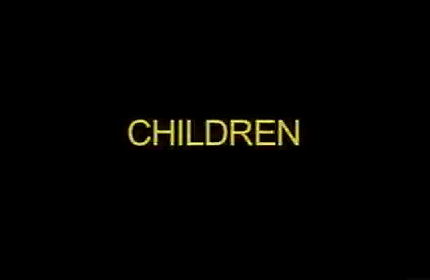
Part 5 Length: 8:27
LARGE (97.3 MB) ----- SMALL (9.4 MB)
CHILDREN
SAYAH: The one child I remember most is Shaista (phon). Shaista lived in the Swat Valley and when the offensive happened, like so many other people Shaista and her family were forced to leave. And their father went to look for a place for them, so it was Shaista, her siblings, and her mother. And an incoming mortar fell right next to them and it wiped away her entire family. And we saw Shaista at a hospital, and this was another instance where I was in disbelief that I was looking at a girl who just days ago had lost her entire family. What did she have to do with the Taliban? What did her family have to do with the Taliban?
ABAWI: There was a little girl, one of our very first stories we actually did in Afghanistan, her name was Banafsha (phon). She was 11 years old, she was begging for leftover morsels of bread. She was going from house to house in a richer area of Kabul where she knew that security guards stood outside the homes and they'd have their lunch. So she'd go after lunchtime with her little bag and beg for bread.
When I was talking to her, she was so matter-of-fact. Everything was matter-of-fact, every answer she had. "Well, I do this because my dad's a heroin addict. I have to help feed my family of eight. My mom has to take care of the babies." She was okay with it because it was a part of life. But it came to a point where I asked her if she prayed.
And that stone face cracked and one lone tear fell from her eye. She went to go wipe it and as she wiped, she brought her hand back and was biting her thumb. So this little girl became a little girl again. That whole time I really felt like I was talking to someone who had experienced so much more than me, because she has. Her life was hard. It was harsh. It was not a child's life. But for a moment she became a little kid again. And it was beautiful to see that.
WATSON: These orphans who had to flee their orphanage in the Swat Valley because it was caught in the middle of the fighting this spring between Pakistani troops and Taliban fighters.
Raise your hand if you love the army.
Uh-huh. Okay. Now, raise your hand if you love the Taliban.
Wow.
And I sat with these kids and they were incredibly well-behaved and polite. They had wonderful manners. And many of them came from families that were so poor they simply couldn't feed their kids and they handed their kids off to this shelter, where they were getting, by all accounts, really a remarkable education. But they'd not only been in the middle of this battle over preceding weeks, but they'd been living in the Swat Valley around this intermittent fighting between the Taliban and the Pakistani security forces for two years They'd seen really horrifying scenes. For example, I asked them, have you guys seen the Taliban, what's been the scariest thing that you guys have seen? And the kids responded, the suicide bombers. And then they started making motions like this (imitates explosion).
Scary, huh?
UNIDENTIFIED BOY: Yes, this is very dangerous.
WATSON: So these children have actually seen and heard the impact of suicide bombers attacking the Pakistani army checkpost very close to their orphanage. It's an appalling thing to imagine for an 8- or 9-year-old person to see the aftermath of that, the pieces of flesh littering the street in the bazaar right outside the shelter where you live and study and eat.
I think that was really a terrifying thing to imagine, that kids would live and live with this knowledge and know what a suicide bomber is and even impersonate one.
ROBERTSON: Children are always so vulnerable in these situations. Just talking here in Pakistan, some aid organizations believe that somewhere between a quarter and one third of all children who've seen and witnessed the fighting here in Pakistan, between one-quarter and one-third are all traumatized in one form or another.
But sometimes it's the children who have the best hope. I remember just in the past couple of days seeing a small girl who was displaced. And I asked her if she wanted to go back home and she said, "Yes, I do want to go back home." And then she said, "Please take me with you." And her whole family sort of laughed a little bit in embarrassment. But this idea that even a little child could know that there's a better life where Westerners come from really kind of stabs you in the heart.
Yeah, you can't help but think about your own children. It's inevitable.
GRANT: Any father can't help but be moved by what you see here. It's heartbreaking. It's heartbreaking, and I don't know what the future for these children is. I don't know. I don't know what they'll do in the future. I don't know if their country is going to have peace. 30 years of war, what will the next 30 years bring? I don't know. I look into the faces of these children, are they the next generation of insurgents, of Taliban? Are they going to grow up to hate my children?
WARE: The kids don't leave you. Never.
I remember a time when I was living in Kandahar back in 2002. It was in the first blush after the invasion, the Taliban had only just left. I was living in this very dingy hotel in the center of the city. Next door was an abandoned government compound. A displaced family moved in.
The way a lot of Afghans cut grass is by burning it. A 6-year-old boy and his 8-year-old brother were burning the grass. They didn't know that there was unexploded bombs in the grass. They detonated right next to the hotel, and we ran down and we found these two kids. I remember by the time we took them to the hospital, we were just covered in blood, and when we got there, there was no medicine to give them, not even painkillers. The boy who we watched die, I gave him Advil because it was more than anyone else could give him. I can still remember his brother wailing. I remember that sound as I left that hospital. I can remember it right now. That's kids in war.

Part 6 Length: 5:34
LARGE (64.1 MB) ----- SMALL (6.2 MB)
THE FUTURE
ABAWI: The Afghan people are tired. They're exhausted. This perception that the Afghan people are used to war, that that's their life, that's their history? They're normal people. You have to see them as human beings.
No one enjoys 30 years of war. No one enjoys watching their kids starve to death. No one enjoys thinking that they could die at any moment. The next turn, there could be a suicide bomber.
WATSON: I find Afghans are really wise because they've dealt with a quarter-century of war and they've heard every promise and lie from every different kind of politician possible, spouting every different kind of ideology possible.
And they're really clever at figuring out where the truth lies. Afghans, the majority of them may be illiterate but they're not gullible.
GRANT: And right now they'll take salvation where they can find it. If it comes from the U.S., it comes from the U.S. If it comes from within Afghanistan, if it comes from movements within Islam, peace is what people want.
If someone can deliver peace, they'll happily latch onto it. That's the message we get time and time again from people. They just want a break. They've had enough.
ROBERTSON: Most Afghans absolutely want war finished. They want a peaceful life. They want to get on with their lives. And that alone should tell the international community that peace can be achievable, quickly.
GRANT: I don't think that you can set foot in Afghanistan and Pakistan without being impressed by ordinary people. Just getting up every day and trying to make your life better is a heroic act. You know, these people are phenomenally brave and phenomenally tough. What they have had to endure has been more than most of us could bear.
SAYAH: In the time that I've lived in Pakistan, the overwhelming majority of people that I've met are kind, generous, peace-loving, moderate people.
They are not extremists. They are not fundamentalists. They don't believe in killing anybody for a cause. They're not suicide bombers. And I think it's important for the world to know that because that gives a sense of hope.
The suicide bombers, the extremists are a minority. But unfortunately, they are capable of making a lot of noise. Suicide bombs get attention. They make headlines.
GRANT: When people talk about the future here, it's hard for them to look beyond the past. The past is what dominates people's lives in Pakistan and Afghanistan. They've lived through war, particularly here in Afghanistan, 30 years of war. It's very difficult to imagine a future.
ROBERTSON: Until you have security here, the world cannot afford to take its eye off what happens here, and it cannot afford not to work for peace. The international community has to bring stability here. It has to keep an eye on what's happening.
GRANT: But we need to be very, very concerned that we don't create another generation of hate, another generation of insurgents. This is the fine line we're walking now.
It's a very, very fine line. There is a strong sense of anti-Americanism amongst many people here. The Taliban feeds off that, al Qaeda feeds off that.
Of course the terror that is hatched here, we can see transported. We can see carried out elsewhere. And that is a big concern for the rest of the world.
WARE: And in many ways, it's in the West's national interests to see these issues resolved. And in many ways, it's just the right thing to do.
WATSON: And there are efforts under way where people are paying with their lives and with millions and millions and billions of dollars to try to stem this growing tide. And they've failed so far, because the Taliban insurgents are still there.
ABAWI: I believe that certain generations are lost. My generation, the generation older than me, they're lost in Afghanistan. They've grown up with a mindset of war, with survival of the fittest. You have to focus on the younger generation. They're the ones that can improve Afghanistan.
